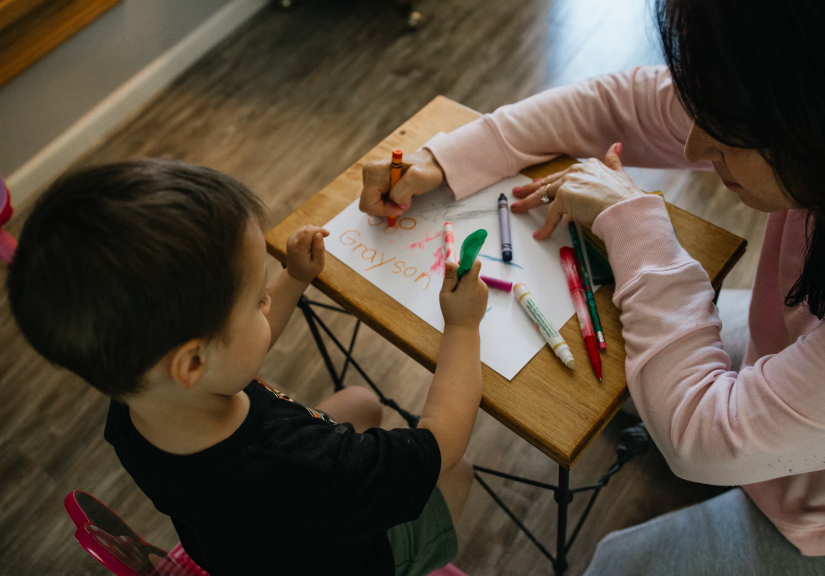
In today’s rapidly evolving world, the importance of laying a solid educational foundation cannot be overstated. Preschool education has emerged as a critical stepping stone in a child’s developmental journey. This blog explores the myriad benefits of preschool education, providing insights for parents who wish to offer their children a head start in life. Through engaging with this content, readers will discover the profound impact preschool can have on a child’s academic, social, and emotional growth.
Cognitive Development
Building Cognitive Skills
Preschool education plays a pivotal role in nurturing cognitive skills in young children. Activities such as puzzles, matching games, and storytelling enhance memory, attention span, and problem-solving abilities. By engaging in these activities, children develop essential cognitive skills that serve as a foundation for future learning.
Encouraging Curiosity
A high-quality preschool environment fosters curiosity through exploration and discovery. Teachers create opportunities for hands-on learning, allowing children to ask questions and seek answers. This curiosity-driven approach promotes critical thinking and a love for learning that can last a lifetime.
Language Acquisition
Language development is another significant benefit of preschool education. Through songs, rhymes, and interactive storytelling, children expand their vocabulary and improve their communication skills. Early exposure to rich language experiences sets the stage for reading and writing proficiency in later years.
Social and Emotional Growth
Developing Social Skills
Early child education services provide a structured environment where children learn to interact with peers and adults. Activities like group projects and playtime teach valuable social skills, such as sharing, cooperation, and empathy. These interactions help children build friendships and understand the importance of teamwork.
Emotional Regulation
In a preschool setting, children encounter various situations that help them manage their emotions. Teachers guide them through conflict resolution and encourage expressing feelings in healthy ways. This emotional regulation is crucial for building resilience and handling stress effectively.
Building Self-Confidence
Positive reinforcement and encouragement in preschool boost a child’s self-esteem. When children succeed in tasks or receive praise for their efforts, they develop a sense of accomplishment. This self-confidence lays the groundwork for a positive attitude toward future challenges and learning opportunities.
Physical Development
Enhancing Motor Skills
Preschool activities often include exercises that enhance fine and gross motor skills. From cutting with scissors to climbing playground equipment, these tasks improve coordination and physical strength. Well-developed motor skills are essential for everyday tasks and overall physical health.
Promoting Healthy Habits
Children in preschool learn about the importance of healthy habits, such as proper nutrition and hygiene. Snack times and routines like handwashing teach them to make healthy choices. These lessons contribute to lifelong well-being and disease prevention.
Encouraging Active Play
Active play is a fundamental aspect of preschool education. Through games, dance, and sports, children engage in physical activities that promote fitness and stamina. Encouraging an active lifestyle from a young age helps combat childhood obesity and fosters a love for movement.
Academic Preparation
Introducing Basic Concepts
Preschool introduces children to basic academic concepts in a fun and engaging way. Activities focused on numbers, shapes, and letters prepare children for kindergarten and beyond. This early exposure makes the transition to formal schooling smoother and less daunting.
Cultivating a Love for Reading
Reading aloud and storytelling sessions in preschool cultivate a love for books and reading. Children begin to associate reading with enjoyment and discovery. This positive relationship with books enhances literacy skills and sets the stage for academic success.
Fostering Independence
Preschool encourages children to take on tasks independently, such as dressing themselves or tidying up. These responsibilities teach self-reliance and decision-making. Fostering independence prepares children for the structured environment of school and daily life challenges.
Parental Involvement
Strengthening Parent-Child Bond
Preschool programs often include activities that encourage parental involvement, such as family days and parent-teacher meetings. These events strengthen the bond between parents and children, creating a supportive learning environment at home and school.
Providing Support and Resources
Teachers and staff in preschools offer valuable support and resources to parents. Workshops on child development and parenting tips help parents understand their child’s needs better. This collaboration ensures that children receive consistent guidance and support from both home and school.
Encouraging Lifelong Learning
When parents actively participate in their child’s preschool education, they model the importance of lifelong learning. Children observe and emulate their parents’ enthusiasm for education, reinforcing the value of continuous personal and academic growth.
Enhancing Creativity and Imagination
Encouraging Artistic Expression
Art and craft activities in preschool provide an outlet for creativity and imagination. Children experiment with colors, shapes, and textures, expressing themselves through various mediums. This artistic expression fosters cognitive and emotional development.
Stimulating Imaginative Play
Preschools create environments that stimulate imaginative play, such as dress-up corners and role-playing games. Imaginative play allows children to explore different scenarios and roles, enhancing their problem-solving skills and creativity.
Supporting Innovative Thinking
Innovation and creativity go hand in hand. By encouraging children to think outside the box and explore new ideas, preschools nurture innovative thinking. This skill is essential for success in today’s rapidly changing world.
Preschool education offers numerous benefits that extend far beyond the classroom. By providing a nurturing, stimulating environment, preschool helps children develop essential skills and a love for learning that lasts a lifetime. Investing in preschool education is an investment in a child’s future, ensuring they are well-equipped to face the challenges and opportunities that lie ahead. For parents seeking to give their children the best possible start, preschool is an invaluable resource that sets the stage for a bright and promising future.


